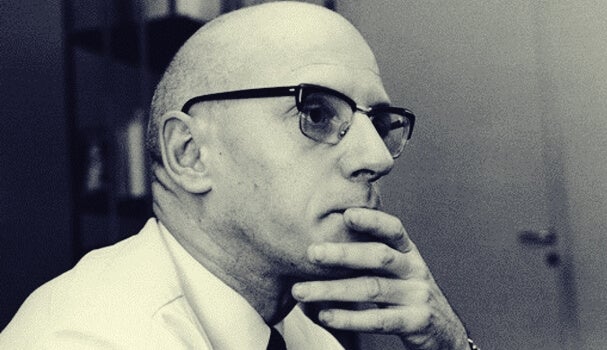Most of Michel Foucault’s phrases are profound and disconcerting, he was one of the great French philosophers of the contemporary era and his thinking marked a before and after.
Michel Foucault was born in Poitiers, France, in 1926, became a philosopher in Paris and lived there until his death in 1984, where he found the main inspiration for his reflections in Martin Heidegger and Friedrich Nietzsche, and enthusiastically studied Sigmund’s theories. Freud.
“I’m not a prophet, my job is to build windows where there used to be only walls. “Michel Foucault?
Foucault has made a name for heso all over the world with his work “Words and Things”. However, other later works, such as “Watch and Punish”, “History of Madness?”What about sexuality? They were very blunt. We have gathered five of his best prayers below:
The relationship between knowledge and power is a theme that appears in many of Michel Foucault’s phrases. This is one of the most emblematic: “The history of power struggles and, therefore, the real conditions of their exercise and support remain almost completely hidden. it’s not one of them: shouldn’t we know?
With this reflection, Foucault means that knowledge is at the service of power. The main service that knowledge provides is to hide the way power is exercised, obtained, and maintained. That’s why he says, “That we shouldn’t know”. about the great figures of power and their works, but little is said about all the actions, manipulations and often abuses behind all this.
Comments on the education system appear in several Michel Foucault sentences. For this French philosopher, it is an area closely linked to power. He therefore states: “Any educational system is a political way to maintain or modify the adequacy of discourse with the knowledge and powers it entails. “
Keep in mind that it does not refer to education in general, but to the education system. There’s a big difference between them. The education system aims to subordinate the scope of words and knowledge, while power aims to subordinate systems of domination. His role, according to Foucault, is, in one way or another, to “domesticte” the individual to serve this system.
Foucault denounces morality as another discourse of power that seeks to perpetuate relations of domination; in fact, this could be seen as an even fiercer and more ruthless form of power than the others. For morality, we can be judged and punished with rejection or exclusion. , anything that agrees or adapts to its parameters.
For this reason, Michel Foucault says in one of his sentences: “You have to be a hero to face the morality of your time. ” The morals of an age can annihilate an individual. We see many of these examples in human history: they prove that Foucault is right. In fact, over time, intolerance against what a society considers immoral was often pushed to the extreme.
For Foucault, there is an obvious analogy between certain areas that seem very different from each other. In this regard, this impressive philosopher raises an interesting question: “It may seem strange that prison resembles factories, schools, barracks, hospitals. “”Does they all look like prisons?” This means that schools have the same social functioning as prisons and psychiatric institutions: defining, controlling and regulating people.
Not only in this subject, but in much of his work, Foucault states that there are three areas in which power is shown more clearly than ever: prison, hospital and barracks, in these three spaces human beings are totally at the mercy of their dominion over him; However, the same is true in other areas, such as factories and classrooms, the only difference is that in the last two the manifestation is more subtle.
As we have seen, many of Michel Foucault’s sentences seek to denounce the coordinates of contemporary power, these reflections show that domination is now exercised mainly from the ideological level, which includes morality, education and certain values or anti-values, this does not exclude. the fact that power is also exercised over the body, not so much as corporal punishment, but as ideological rules.
One of Michel Foucault’s phrases sums up his vision of power: “Bref, we must admit that this power is exercised more than it has. “This means that power is not defined by a position or simply by a condition. your effective exercise is powerful.
Michel Foucault is one of those great thinkers who revolutionized the way we see reality, he understood very subtle logics present in everyday situations. Foucault’s philosophy is a discourse of freedom.

